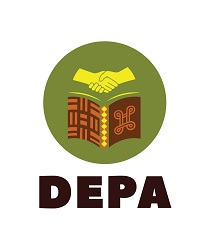How long is the Award for?
Phase III awards are set to last between 3 and 6 months. Applicants should specify the duration of the proposed project at the point of application. Each project is encouraged to build a contingency plan into their timetable to account for possible delays/complications to commissioned projects.
A pandemic risk assessment will also be required with the initial application.
What activities does the grant cover?
Funding for new collaborative research projects which involve exploratory, innovative research, community engagement, arts methods, dissemination, and long-lasting impact, within the themes of decolonising peace education.
These activities could be in the form of conferences, workshops and seminars, fellowships, exchanges and placements. Outputs and outcomes should be clearly articulated and tailored to the activity and challenge area. They could include, but are not limited to:
- Enhanced capabilities/facilities
- Policy briefings
- Journal articles
- Conference papers
- Websites and digital resources
- Training materials
- Public engagements
- Exhibitions, catalogues
- New and changed projects, services, commercial outputs
- Enhanced cultural and heritage assets
- Creative outputs, including performances for example.
What costs does the grant cover?
- The maximum amount of funding for which you can apply is either:
- Individual Researcher Grants - up to £5k; this includes 100% of costs for UK applicants even though only 80% of these costs can be funded by the grant.
- Small grants - Between £10k and £30k; costings should be calculated using 100% of UK partners’ costs even though, as per UKRI rules, only 80% of these costs can be funded by the grant.
- Large grants – up to £60k; costings should be calculated using 100% of UK partners’ costs even though, as per UKRI rules, only 80% of these costs can be funded by the grant.
- Any UK component of supported projects will be funded in accordance with standard AHRC funding terms and conditions for grants, i.e., at 80% FEC (full economic costs) for UK research organisation costs (with the UK research organisations involved in projects contributing 20% of the full economic costs).
- All other, non-UK organisations, can request costs at 100%. This can include overheads.
Eligible costs include:
- Staff salaries.
- Travel and Subsistence.
- Other Direct Costs (consumables, fees, etc.).
- Costs may be included to support inclusive participation in development impact activities, for example in terms of translation costs or support for carers.
- A contribution towards indirect and estates costs can be made for overseas organisations with DAC list (LMIC) countries; up to 20% of total eligible direct costs charged to the grant directly relating to the activities of the LMIC Investigator.
- Estates/indirect/overhead costs cannot be requested for international co-investigators employed by academic organisations which are not based in a DAC list country.
- If indirect costs are claimed for overseas (co-)investigators in DAC list countries it is not also possible to request direct costs to cover basic office and facilities (e.g. library access etc.) and minor/day-to-day consumables (e.g. photocopying, telephone calls, etc.) although major additional research related costs (e.g. linked to specific research methods such as survey/ fieldwork costs or development of project-specific digital resources) may be requested as direct costs where appropriate.
- Overheads for: UK Research Organisations: as per usual AHRC rules DAC country organisations: up to 20% of salary costs.
What costs can’t the grant cover?
- Any fees for undergraduate or postgraduate courses.
- First class travel costs or priority visa fees.
- Travel/trips which show no real outputs for professional development.
- Applications made on behalf of applicants without the applicants’ agreement.
- Costs for activities that don’t adhere to ODA Compliance.
- Capital or infrastructure expenditure is not an eligible cost.
- Costs for equipment purchase under £10,000 should only be considered where significant use of equipment is required specifically and primarily or solely for the proposed research activity and/or where this is more cost effective for the project than other options such as hiring equipment
Budget Justification
This is an explanation of the required resources:
- Justify the need for investigator time, consultancy, or subcontracting, considering the administrative responsibilities of running a project.
- The need for facilities or staff must be justified, but we do not need a justification of their value.
- Estates costs do not need to be justified.
- Cost for items expected to be found in a host institution must be justified.
A basic budgeting table is included in the application form, along with an Excel budget document, where you must provide a full breakdown of costs.

